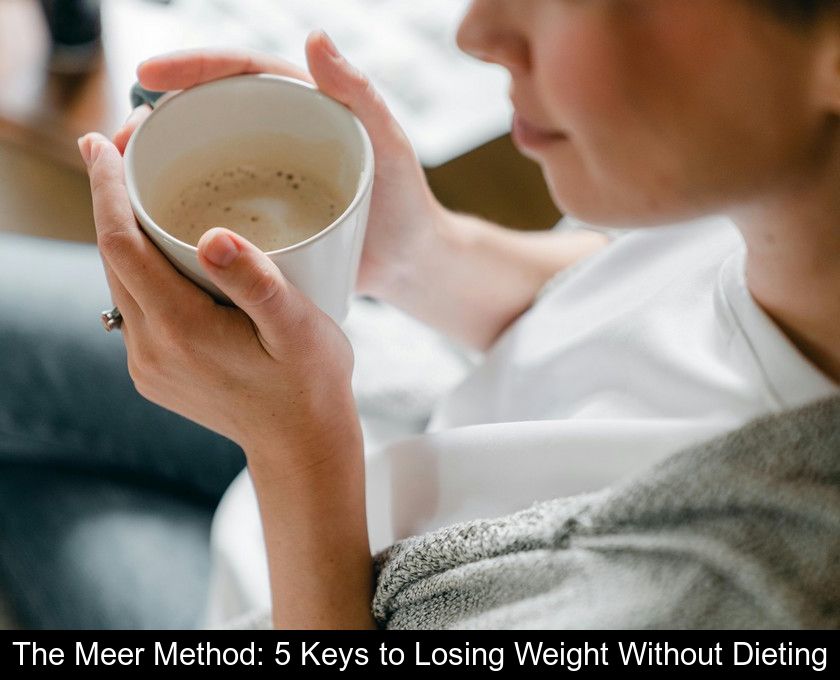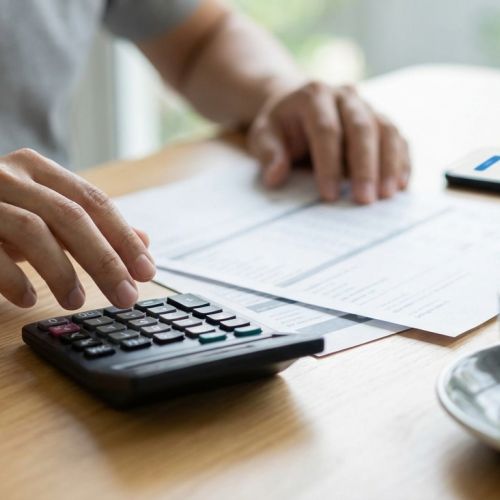The Meer Method: 5 Keys To Losing Weight Without Dieting
As the warmer days approach, slimming methods abound in women's magazines and on the Internet. Rather than following yet another diet with fleeting results, it is more effective to reconnect with one's body for lasting weight loss. This is the principle behind the Meer method, created by a neuro-behavioral nutrition coach. We invite you to discover this diet-free weight loss method in 5 key points.
Food is not the root of the problem.
The Meer method allows for weight loss without dieting as it is based solely on psychological work.
According to Nathalie Meer, the founder of this revolutionary method, dietary restrictions do not work sustainably for weight loss because the content and quantity of meals are not the core issue for overweight individuals.
The real question is rather the role that food plays for the person, whether they hate food, are obsessed with it, want to control it without success, or use it as a comfort object...
The brain influences eating behaviors.
The Meer method encourages patients to become aware of how much the brain and emotions influence eating behaviors. During stress and negative emotions, our brain can prompt us to eat even when we are not hungry, seeking comfort and pleasure from food.
Nathalie Meer, who has worked in the gastric surgery department at the Marignane clinic and has supported many obese patients, explains: "The issue is not the food we consume, but rather the significance it represents and the discomfort it aims to compensate for."
Moreover, several studies have shown that overweight individuals are those who struggle the most with dealing with difficult events. They use food as a refuge and a protection against their negative emotions.
3- We must rediscover the sensation of hunger.
For overweight or obese patients, one of the goals of the Meer method is to reconnect with the sensation of hunger, that is, the true physiological hunger.
Patients following this method must stop all food restrictions and substitutions, such as eating raw vegetables when craving pasta or meat.
They must also, and above all, start eating when they are hungry, which is not so simple because they need to learn to distinguish between "true hunger" and "false hunger". For example, eating chocolate for emotional comfort is a good illustration of the concept of false hunger...
To reconnect with the true sensations of hunger and satiety, the Meer method challenges several preconceived notions and patterns imposed by society. Thus, this method considers that it is not necessary to eat three times a day and that it is perfectly possible to skip a meal if one is not hungry. It is also not necessary to eat at fixed times, since the most important thing is to listen to one's body and appetite.
4- One must listen to their body above all else.
Because it is based on a psychological and behavioral approach, the Meer method is much more than just a weight loss method. It is rather a nutritional and cognitive rebalancing.
This method encourages patients to reconnect with their bodies to better listen and respond to its demands and needs at the right time.
It allows them to make peace with food and eat without restrictions or guilt for long-term results. With this method, one should not expect rapid weight loss. On average, it takes between 5 and 12 months to see results, in terms of weight loss and well-being. But the great advantage of this method is that it puts an end to the yo-yo effect and weight regain.
5- Other solutions for managing stress can be found with the help of a coach.
In the Meer method, patients learn to stop using food as a comfort object or a compensation for the stress of daily life or the stress related to a difficult event, such as a death, divorce, or job loss. This method even addresses unconscious stress, passed down from generation to generation, which traps certain patients in unhealthy behavior with food.
Part of this behavioral method involves learning techniques to defuse binge eating or food compulsion crises. In order not to eat solely to calm themselves, patients learn to manage their stress differently, with the help of a coach.
This protocol begins with an interview with a coach to establish a personalized assessment and determine the number of coaching sessions to follow, depending on the number of pounds to lose and the goals of each individual.
Subsequently, individual consultations lasting 1 hour and 30 minutes are scheduled about once a month. Between each coaching session, the patient must perform exercises aimed at changing their eating behaviors.
This method, which represents a real investment in time and money, is primarily aimed at people with obesity and/or those suffering from eating disorders.







